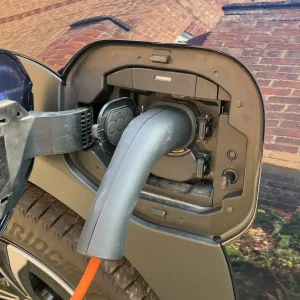Fleet decision-makers can use uncertainty surrounding the introduction of WLTP standards to prove their worth to their bosses and company car drivers.
That’s the message that emerged from a recent masterclass held by fleet-training organisation ICFM.
The new WLTP – designed to provide more realistic fuel economy and CO2 emissions figures – was partially introduced in September, with figures correlated back to resemble those obtained under the old NEDC regime.
However, these interim figures have still produced rises, while there have also been new car supply delays as manufacturers work to comply with the new tests.
It adds up to a tricky picture for fleets, but Caroline Sandall, a director of ESE UK Consulting and deputy chairman of fleet operator organisation ACFO, said managers could use it to their advantage, calling it “a great opportunity for fleet managers to demonstrate their worth”.
She added, “Silence can be really dangerous, and it will result in other people making decisions and they may not be the best.
“Fleet managers are in unprecedented times so must use the opportunity to demonstrate their value.
“They must engage with company car drivers and management, and ensure they are monitoring what is happening. It is about self-preservation and demonstrating what a great job fleet managers do.”
Sandall said managers must make WLTP clear for company car drivers and management to understand, while also assessing the business impact, considering best and worst case scenarios.
She warned of potential risks if WLTP prompted firms to move away from company cars.
She said, “Keep drivers and management informed, give insightful information, provide reassurance and clear information, especially if consideration to switching to cash is being considered.
“Businesses may not want drivers to leak out to a cash allowance so fleet managers must consider how to keep them within the arms of company car provision.
“Many companies are looking at binning company car schemes because they consider cash to be easier. So it is vital that fleet managers ensure that businesses understand everything about the complexity of grey fleet and are aware that employees’ choice of car may be horrific in terms of CO2.”
Sandall said that contingency planning managers could undertake included calculating the cost impact of extending vehicle replacement and challenging any increases with vehicle providers.
She added that managers could work with supply chains, especially key car manufacturers, to understand their future vehicle plans and production lead times, and work through alternative company car choice list options, building the optimal business case.
Also warning of the risks of a move away from company cars was David Bushnell, principal consultant at leasing company Alphabet.
He said, “We are seeing a lot of fleets revisit the option of cash allowances, particularly for 40% taxpayers.
“While cash has an important part to play in the right scheme, the company car ensures that everyone is treated fairly regardless of age, credit worthiness, annual mileage, penalty points and insurance history.
“Cash allowances offer flexibility, but the amount of cash provided may cost more than the value of a company car.”
To prevent employees opting out of company cars, Bushnell advised fleets should review car choices linked to whole life cost, vehicle rental and CO2 emissions.
He said company car choice lists should only include vehicles with the best WLTP performance, and that fleets should also consider optional extras, as these have a bigger effect on official CO2 emissions than before.
Bushnell also advised against delaying company car orders, saying this could result in longer vehicle lead times in the future, leading in turn to drivers incurring increased BIK tax as they stayed in older cars longer. Instead, he said businesses should defleet and switch to short or mid-term rental.
Bushnell also said fleets should increase their share of electric vehicles, continuously evaluating the associated whole life costs to establish their benefits against petrol and diesel models, while making sure plug-in hybrid cars were regularly charged and not simply run as a ‘tax dodge’.





